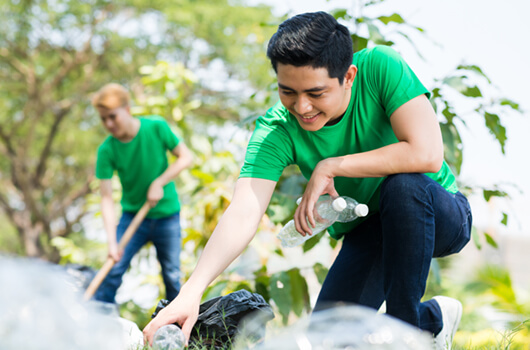
Entering recovery for a substance use disorder begins a life-changing journey in which you’ll gradually shift away from a focus on self. While in treatment, you acquired healthy interpersonal skills, learned to rely on your Higher Power, and began the process of repairing and healing your relationships.
One of the most important goals of the 12 Step program involves volunteering your time and energy to help others in need. The idea is that by helping others, such as volunteering at meetings, becoming a sponsor, or assisting at A.A. events, you are engaging in a positive recovery activity that helps reinforce your own sobriety.
That said, the possibilities for volunteering your time aren’t limited to just A.A. There are many volunteer activities to choose from within your own community. When you volunteer, whether at A.A. or a local charity, you will soon find that offering your time in order to brighten someone’s day is immensely beneficial to your mental health.
3 benefits of volunteering
Whether you are serving up hot meals at a soup kitchen, walking rescue dogs at the shelter, or volunteering to read stories to kids at the local library, chances are you will experience just as much joy as the recipients of your efforts do. Volunteering is all about touching lives in a meaningful way, and from those interactions you will enjoy a slew of benefits:
- Improves Mental Health: Giving, without expecting anything in return, is immensely gratifying. In fact, the brain produces a surge in dopamine, the pleasure chemical, when you engage in volunteer activities. You will experience a renewed sense of purpose as a result of actively contributing to someone else’s wellbeing. Volunteering offers enormous benefits for mental health, including reducing stress and helping to combat depression.
- Improves Sociability: Most volunteer activities involve interacting with other people. This is one of the reasons why volunteering in recovery is so vital, as it helps you avoid isolation and loneliness. As you engage with others, you become more confident about interacting socially, which then improves your self-esteem. This renewed confidence and positive sense of self helps you overcome lingering social anxieties and helps you form new friendships.
- Battles Boredom: Making good use of your down time is crucial in recovery. With so many volunteer opportunities to choose from, you can easily fill up your calendar. The best part is that you are doing something meaningful with your spare time, versus wasting your time with mindless activities. So, when you notice you’re feeling bored, go sign up as a volunteer. You can help plant a community garden, distribute food to the needy, or pick up trash at the beach.
The importance of mental health coping skills in recovery
Volunteering is just one of many effective mental health coping skills to utilize in recovery. Learning these skills is essential because maintaining emotional stability helps us to not relapse.
In addition to volunteering, other good mental health coping skills include:
- Practicing mindfulness
- Using deep breathing techniques
- Getting regular exercise
- Practicing yoga
- Getting adequate sleep
- Maintaining social connections
- Practicing conflict resolution techniques
- Journaling
Each of these, in addition to volunteering, can play a vital role in maintaining mental wellness. Taken as a whole, these actions constitute self-care. When you practice self-care routinely, you are recognizing that you are worthy of health and happiness. When you add some volunteer work to that routine, you are also recognizing the worthiness of others.
Ashley Addiction Treatment, formerly Father Martin’s Ashley, is a nationally recognized nonprofit leader in integrated, evidence-based treatment for substance use disorders. Our programs are accredited by The Joint Commission, and result in frequent publications of ongoing research into effective treatment methodologies. We offer holistic care that encompasses the mind, body and spirit through inpatient and outpatient treatment, provide drug detox, relapse prevention plans, family wellness programs and a variety of other services tailored to each patient’s unique needs. Our driving principle — “everything for recovery” — reinforces our mission to transform and save lives through the science of medicine, the art of therapy and the compassion of spirituality, and is complemented by our philosophy of healing with respect and dignity. For information about our comprehensive programs, please call (866) 313-6307.
